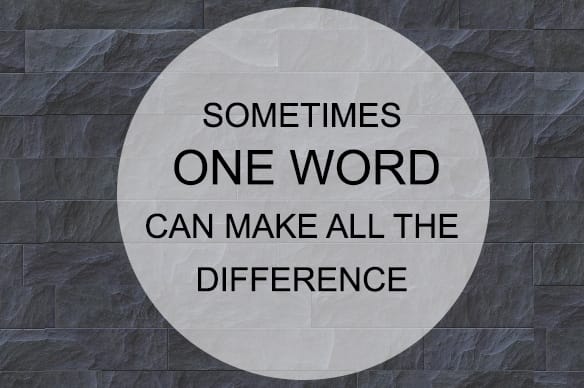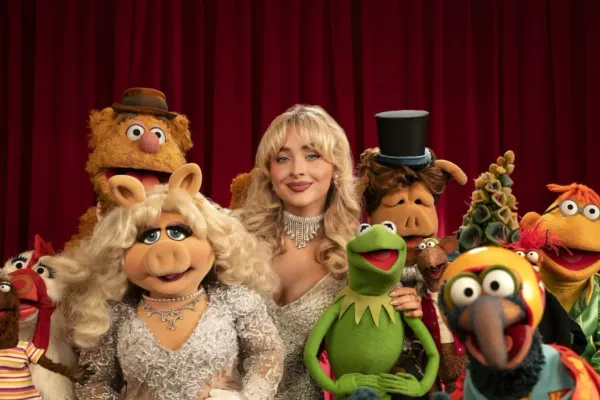Episodes: Your show in one word

Back when I was first starting out as a wannabe TV critic and/or TV writer, I read a blog post (that I've long since lost track of) that said something that really stuck with me.
It said that since your TV show has to run for many, many, many episodes and hopefully many years, you need a sort of touchstone word, something that goes beyond even a theme or a plot or a character description, even deeper than that. That word is one you can turn to at all times, and if you don't lose sight of it, the show will be all the better for it.
This word doesn't express how your show feels about the topic, or anything like that. Ideally, the word gets examined from all angles. You kick at it and chip away at it and try to figure out what makes it tick. When you're through with it, it's time for the show to end (though by then you're hopefully a millionaire).
For instance, I've always thought that Lost's word was "Salvation." Think of all of the ways the show played around with that word, subverted it, saw what was hiding inside of it. Sometimes, Salvation was a promise on Lost, and sometimes, it was a curse. But it always came back to that one word in the end, and the fact that I've always felt that idea was at the center of the show may explain why I don't feel so bad about the final episode as some folks do.
I've often applied this to TV criticism as well, because I think it's a useful way for me to think about what I value about the shows I love. Obviously, I might have a different idea from you (or from the showrunner!), and it's important not to lose sight of the thought that my word isn't everybody's word. But I've found it very helpful at times when I feel like a show has lost its way and can't quite put my finger on why. Sometimes, the problem is with me. Sometimes, it's with the show. But digging into my relationship to that one word often solves the problem.
(That said, sometimes it doesn't! Homeland has pretty reliably been a show that boils down to Patriotism for me, but it hasn't always known what to do with that idea, even when it was focused on it explicitly.)
Like I said, this is sort of like a theme, but even more elemental than that. It has its roots in the very bedrock of the show, and if you don't feed and water it, then it will start to wither, and your show will crumble along with it. It applies to comedies just as well as it does dramas, and you'd be surprised how weighty some of your favorite comedies might sound when boiled down to just a word.
That's really all I have to say about this, but I thought I'd give a few more examples for some of my favorite shows, because I've always enjoyed this parlor game.
Leave It to Beaver: Change
The Sopranos: Family
The Wire: Justice
Deadwood: Civilization
The Simpsons: America
The Mary Tyler Moore Show: Opportunity
Mad Men: Death
Breaking Bad: Life
Girls: Maturity
The Americans: Loyalty
Cheers: Success
The Handmaid's Tale: Freedom
Surely you can come up with some others, and you probably disagree with a few of mine! Some shows are easier than others, but just about every successful show, even ones you don't like, has something like this buried at its core. Dig around!
---
Our Friday mailbag feature is a lot of fun! Please email me your questions over the course of the week, and I'll pick a few to answer. I'll always answer at least three per week, unless I just don't have the material. For ease of inbox search, please put "mailbag" somewhere in the subject line of your email. Thanks!
--
Episodes is published three-ish times per week, and more if I feel like it. It is mostly about television, except when it's not. Suggest topics for future installments via email or on Twitter. Read more of my work at Vox.




